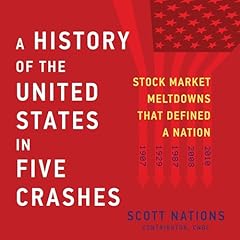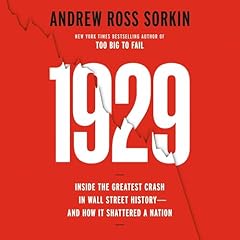
The Affluent Society
No se pudo agregar al carrito
Add to Cart failed.
Error al Agregar a Lista de Deseos.
Error al eliminar de la lista de deseos.
Error al añadir a tu biblioteca
Error al seguir el podcast
Error al dejar de seguir el podcast
Obtén 3 meses por US$0.99 al mes
 Exclusivo para miembros Prime: ¿Nuevo en Audible? Obtén 2 audiolibros gratis con tu prueba.
Exclusivo para miembros Prime: ¿Nuevo en Audible? Obtén 2 audiolibros gratis con tu prueba.
Compra ahora por $20.78
-
Narrado por:
-
Marc Cashman
Galbraith's classic on the "economics of abundance" is, in the words of the New York Times, "a compelling challenge to conventional thought". With customary clarity, eloquence, and humor, Galbraith cuts to the heart of what economic security means (and doesn't mean) in today's world and lays bare the hazards of individual and societal complacence about economic inequity.
While "affluent society" and "conventional wisdom" (terms first used in this book) have entered the vernacular, the message of the book has not been so widely embraced - reason enough to rediscover The Affluent Society.
©1998 John Kenneth Galbraith (P)2009 Audible, Inc.Los oyentes también disfrutaron:




















Las personas que vieron esto también vieron:


















Galbraith saw today in 20/20 foresight.
Se ha producido un error. Vuelve a intentarlo dentro de unos minutos.
Everyone elected and making macroeconomic decisions in the USA should be exposed to his ideas here.
Sadly, his ideas aren't presented in the most easily understood English (thus 4 stars). Fortunately, possessing a PhD in economics isn't essential to understand that "circumstances" have changed since the days Adam Smith, David Ricardo, and Thomas Robert Malthus first codified classical liberalism (i.e. the sacrosanctity of free markets and laissez-faire economics).
There are very compelling arguments against the sacrosanctity of free markets and laissez-faire economics here. He doesn't say classical liberalism is *wrong*, only that times have changed since its intellectual foundations were erected. The arguments are tastefully expressed and do not tarnish the contributions of Smith, Ricardo, or Malthus.
Neither are the arguments Marxist (in terms of heralding the end of capitalism). Nor are they Keynesian (in the sense of making production sacrosanct). The argument is mostly about understanding that society's needs have changed since 1776 (when the "Wealth of Nations" was published) and even since the days Marx and Keynes made their monumental contributions.
John Kenneth Galbraith takes economics back to its humble origins as a moral philosophy. I love that about this educational and enlightening essay on inequality and how it may be resolved.
WARNING: This work may require readers to possess a level of consciousness and morality that is in scare supply in 2022.
Good 20+ years after the 40th anniversary edition
Se ha producido un error. Vuelve a intentarlo dentro de unos minutos.


